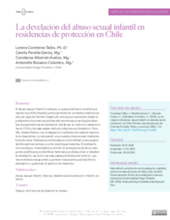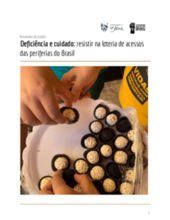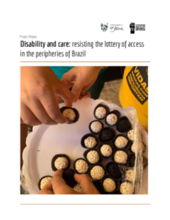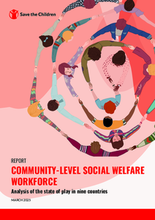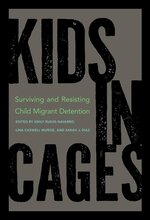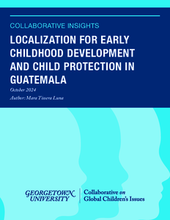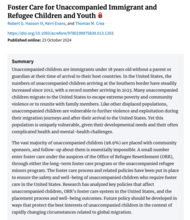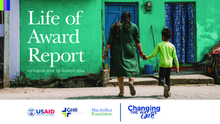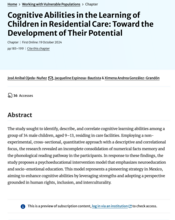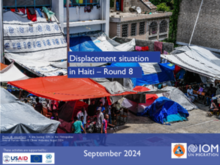This page contains documents and other resources related to children's care in the Americas. Browse resources by region, country, or category.
Displaying 11 - 20 of 1438
El abuso sexual infantil constituye un grave problema mundial que resulta muy difícil develar, particularmente en contextos institucionales y sin soporte familiar. Desde allí, se busca comprender, desde la perspectiva de personas adultas sobrevivientes y psicólogas tratantes, las experiencias de develación del abuso en entornos residenciales en Chile y las respuestas institucionales tras su develación.
Este relatório examina o contexto histórico e social da deficiência e do cuidado no Brasil, com ênfase na percepção das mães e cuidadoras, destacando as desigualdades profundamente enraizadas enfrentadas por pessoas com deficiência e suas mães, particularmente em áreas periféricas. A história de exclusão do Brasil, enraizada em ideologias racistas, capacitistas e sexistas, continua a marginalizar pessoas negras, mulheres e pessoas com deficiências, com mulheres negras e pobres desproporcionalmente atribuídas a papéis de cuidado.
This report examines the historical and social context of disability and care in Brazil, with emphasis on the perception of mothers and caregivers, highlighting the deep-rooted inequalities faced by people with disabilities and their mothers, particularly in peripheral areas. Brazil’s history of exclusion, rooted in racist, ableist, and sexist ideologies, continues to marginalize Black people, women, and people with disabilities, with Black and poor women disproportionately assigned care roles.
This report, based on a study across nine countries, examines how to strengthen the community-level social welfare workforce (CLSWW) as a vital but under-resourced part of national child protection systems. It calls for context-specific strategies that clearly define roles and competencies, build capacity, and align with local norms, mechanisms, and resources to enhance child protection outcomes.
This interdisciplinary work brings together voices from the legal realm, the academic world, and the on-the-ground experiences of activists and practitioners. At the heart of these narratives lies a crucial debate: the tension between harm-reduction strategies and abolition.
This Collaborative Insights report gathers perspectives on strengthening ECD efforts from Guatemalan grassroots practitioners, national social movements, community-based organizations, international non-governmental organizations, donors, and the Guatemalan government.
This research analyzed key policies that affect unaccompanied children, the Office of Refugee Resettlement (ORR)'s foster care system in the United States, and the placement process and well-being outcomes.
The Changing the Way We Care℠ (CTWWC) Life of the Award Report highlights the initiative’s global efforts to promote safe, nurturing family care for children. Since 2018, CTWWC has been driving care reform in countries like Guatemala, Kenya, and Moldova, while supporting smaller projects in Haiti and India.
This study sought to identify, describe, and correlate cognitive learning abilities among a group of 34 male children, aged 9–13, residing in care facilities in Mexico. This model represents a pioneering strategy in Mexico, aiming to enhance cognitive abilities by leveraging strengths and adopting a perspective grounded in human rights, inclusion, and interculturality.
This IOM report reveals that there are more than 700,000 people currently displaced within Haiti, 52% of whom are children. Haiti is experiencing an unprecedented crisis that has affected the entire population, including the many orphanages operating there.


